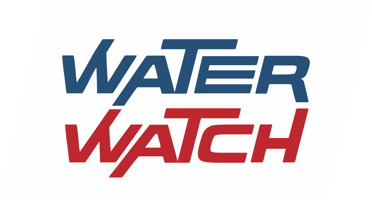“My apartment doesn’t have any heat.” Six words a property manager never wants to hear. By the time...
When Does Heating Season Start? & What it Means for Your Building

As the current heating season winds down, it's time to look ahead and prepare for the next. While heating might be the last thing on your mind as you approach the warmer months, summer offers the perfect opportunity to evaluate and enhance your building's heating capabilities.
This proactive approach ensures a smoother transition when temperatures drop and optimizes energy usage and costs. Let's explore when the next heating season starts and why the end of one heating season is the ideal moment to start preparations.
When is Heating Season?
The heating season generally spans from October to March in the Northeastern U.S., including key urban centers like Boston and New York City. This period is critical for building management, as the effectiveness of your heating system directly impacts tenant comfort and operational efficiency.
The exact timing of the heating season can vary significantly, influenced by a combination of geographic, climatic, and regulatory factors:
- Geographic Location: Your property's location is a primary determinant. Buildings in colder regions, such as the northeastern U.S., typically require heating earlier than in milder climates. The specific needs of these buildings must be anticipated well ahead of the colder weather.
- Climate Patterns and Historical Weather Data: Long-term weather patterns and historical data are invaluable for predicting when heating needs will increase. This information helps building managers anticipate changes and prepare heating systems accordingly.
- Heating Regulations and Local Policies: In cities like New York, heating season dates are not just recommendations but regulatory requirements. Local laws mandate specific heating start and end dates to protect tenant welfare and ensure comfort throughout the colder months. Understanding these regulations is essential for compliance and effective building management.
Implications for Your Building
The heating season presents significant challenges for commercial buildings, particularly in New York City, where NYC heat regulation mandates strict indoor temperature standards. Many older heating systems, originally designed to operate continuously since the health mandates of the 1918 Spanish flu, led to high energy use and increased utility bills during the colder months. Not only is there excessive energy consumption during mild months, but you may make your tenants too hot when the temperature outside isn’t calling for it.
As the temperature drops, these inefficiencies become more noticeable, emphasizing the need for more energy-efficient heating options. Smart boiler controls use sensors and predictive automation to adjust heating based on indoor conditions and weather forecasts, greatly reducing unnecessary energy consumption.
These controls enhance heating efficiency, helping reduce costs and supporting environmental sustainability by minimizing the building's carbon emissions. Therefore, the heating season highlights the need for advanced heating control in commercial buildings, ensuring they are cost-effective and compliant with regulations.
Preparing Your Building for Heating Season
Preparing your building's heating system for the colder months is crucial as summer's warmth fades and autumn's chill approaches. Starting with early inspections, scheduling a professional evaluation of your heating system before the season begins is important. This will allow you to identify and fix potential issues before they become significant problems.
During this inspection, cleaning out accumulated dust and debris from the off-season and making necessary adjustments ensures that each component operates at its best. Following the cleanup, a thorough system test run is essential; this helps verify everything is working correctly, listening for unusual noises and monitoring performance for inconsistencies.
Addressing these areas proactively during the warmer months provides sufficient time for any required repairs and optimizations, which enhances indoor comfort and helps manage energy costs effectively. Upgrading insulation or installing energy-efficient windows should be considered.
The Role of Smart Heating Controls
As the heating season begins and temperatures fluctuate, the benefits of smart heating controls become particularly evident. These advanced systems are crucial for managing your building's efficiency and comfort. By adapting to changing weather conditions and internal demand, smart boiler controls ensure optimal heating, preventing energy waste and unnecessary heating during unseasonably warm days.
The precision of smart heating controls offers significant financial advantages. By maintaining ideal temperatures based on real-time data, these systems help avoid the excessive energy costs typically associated with manual adjustments and outdated systems. This adaptability not only enhances tenant comfort by eliminating overheating or underheating but also contributes to the overall sustainability of your building by reducing its carbon footprint.
Moreover, the insights provided by smart heating solutions empower building managers to make data-driven decisions that can lead to further cost reductions and efficiency improvements. Understanding and leveraging these patterns allows you to fine-tune your building’s heating operations to achieve even greater energy and cost savings. As we approach the heating season, investing in these technologies is a proactive step towards smarter, more responsive building management.
Are you ready to show your team lower emissions and energy savings next heating season? Runwise smart heating controls give you control over your boiler to cut down on your building’s energy usage, get compliant through 203o, and ultimately reduce your monthly energy bill. Let’s discuss how Runwise can help you today.




